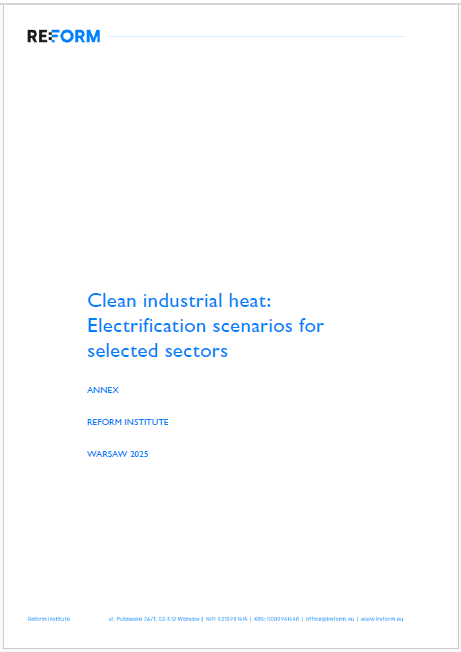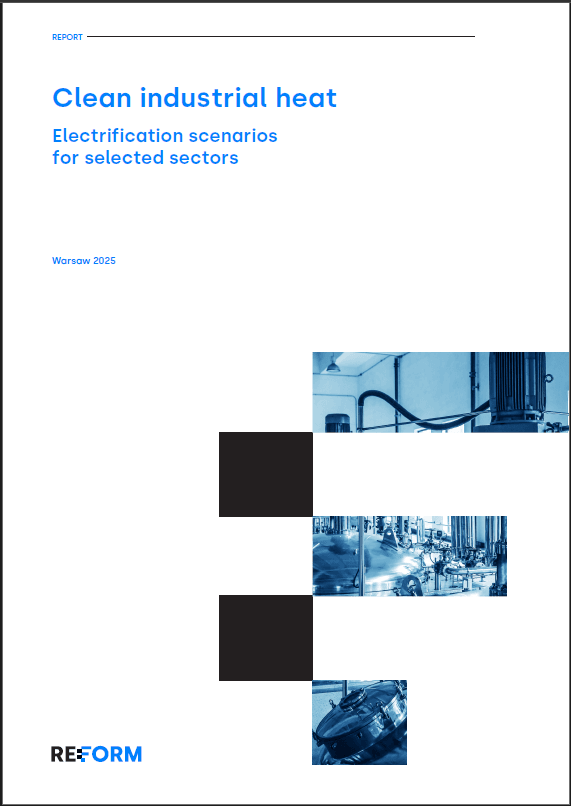"Clean industrial heat: Electrification scenarios for selected sectors" – Reform Institute Report
About the project
With the upcoming ETS2 and the limited availability of biomass, electrification of industrial processes is becoming not only an environmental necessity, but also the most economically viable direction for plant transformation. The process industry, which is the backbone of the Polish economy (generating 23.5% of GDP and providing employment for nearly 2.8 million people), uses a significant portion of the country's energy needs to produce heat, making it generate 60 million tons of CO₂ each year - more than the heating industry. This is a high environmental cost that could already be significantly reduced, while improving the competitiveness of the sector.
A new analysis by the Reform Institute examines three industries that could be successfully electrified with heat pump technology: food, paper and selected branches of the chemical industry. For each of them, our experts have developed three transformation scenarios - from continuation of current operations (business-as-usual) through partial electrification with biomass, to full electrification. The results of our study show how much plants can save if they take steps now:
- Food industry - 264 million PLN per year in 2040 and up to 511 million PLN per year in 2050,
- Paper industry - 96 million PLN per year in 2040 and 170 million PLN in 2050,
- Chemical - 89 million PLN per year in 2040.
In most scenarios, biomass electrification is the most cost-effective transformation model. The business-as-usual model did not prove to be the most cost-effective in any of the scenarios.
The report makes it clear that as early as 2040, all three analysed industries could gain significant advantages from investments in heat pumps. For this to happen, however, companies' investment decisions alone will not be enough - the push must be followed by policymakers' actions to stimulate decarbonization.
It is necessary to:
- Activate support mechanisms for industrial electrification;
- Simplify administrative procedures to speed up RES investments in industrial plants, in accordance with the REDIII directive;
- Amend direct line regulations that will allow industrial plants to use energy from their own RES sources;
- And pursue a transparent energy transition policy that does not allow, for example, further subsidization of fossil fuels.
Industrial electrification is a long-term process that, to generate the greatest savings, requires decisions today.
The report was prepared as part of a project funded by the Climate Imperative Foundation, with support from experts from the AGH University and the Energy Market Agency, who provided the data and analysis used in the study.

